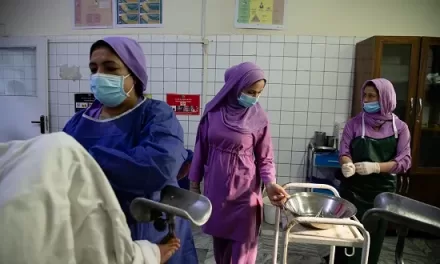A groundbreaking mobile application, AHOMKA, designed to facilitate patient-to-provider communication, is showing promising results in managing hypertension among patients in Ghana. Developed through a collaboration between the School of Engineering and leading medical institutions in the country, AHOMKA has helped participants in a recent pilot study achieve significant reductions in their blood pressure levels.
Over an eight-week period, patients using the app saw their average blood pressure decrease from 139/87 mmHg to 126/83 mmHg. More than 70% of participants consistently utilized the digital tool at least once a week to record their blood pressure readings, which were then shared with their doctors for remote monitoring.
According to findings published in the Health Sciences Investigations Journal, the AHOMKA app has the potential to address key challenges in Ghana’s healthcare system, including a high patient-to-doctor ratio. “In Ghana, where we can have up to 7,000 patients per physician, traditional healthcare visits alone aren’t enough to help people manage chronic conditions like hypertension,” said Valencia Koomson, associate professor of electrical and computer engineering and senior author of the study.
A major hurdle in Ghana’s healthcare landscape is the uneven distribution of medical professionals, with 80% of doctors concentrated in just five regions. This geographical imbalance makes access to medical care difficult for those in rural areas. AHOMKA aims to bridge this gap by offering an accessible and cost-effective platform that functions even without internet access.
Koomson, whose research focuses on biometric wearable sensors, initiated the project in 2019 with the goal of creating technology capable of accurately capturing vital signs across diverse skin tones and functioning in telehealth settings. The AHOMKA app was developed in partnership with Ghanaian cardiologists at the Korle-Bu Teaching Hospital in Accra and the Ho Teaching Hospital in Ho.
In addition to tracking blood pressure, the app was designed to educate patients about hypertension, encourage confidence in blood pressure self-monitoring, and promote healthier lifestyle habits. “Health literacy is an important part of this project,” Koomson noted. “There can be stigma associated with hypertension, as people don’t want to be perceived as weak. Our goal was to measure whether education through the app could change participants’ attitudes toward managing their health.”
Developed for Android devices, the AHOMKA app works with an accompanying blood pressure cuff and can store data even in offline mode. The project was supported by health technology company Medtronic, which has backed similar initiatives across Africa.
Feedback from participants and healthcare workers has been largely positive, with many patients citing the convenience of remote monitoring. “One participant shared that clinic visits meant losing a day’s wages, making it difficult to manage his blood pressure,” Koomson revealed. “Through AHOMKA, his doctor could track his results remotely and arrange follow-ups at a closer facility, significantly reducing delays in care.”
As the trial expands beyond the initial 27 patients, developers are working to enhance the app’s compatibility with multiple mobile operating systems and are employing a Ghana-based software team to ensure smooth functionality. Future iterations of AHOMKA may include features allowing patients to upload medical records and consult AI-driven chatbots for health concerns. Additionally, developers are working on a text-messaging system for individuals without smartphones, ensuring inclusivity in healthcare accessibility.
Koomson’s long-term vision includes adapting AHOMKA to support patients with other conditions, such as sickle-cell disease, a prevalent health issue in sub-Saharan Africa.
Disclaimer: This article is based on research findings and is for informational purposes only. It does not constitute medical advice. Patients should consult healthcare professionals for personalized medical guidance.












